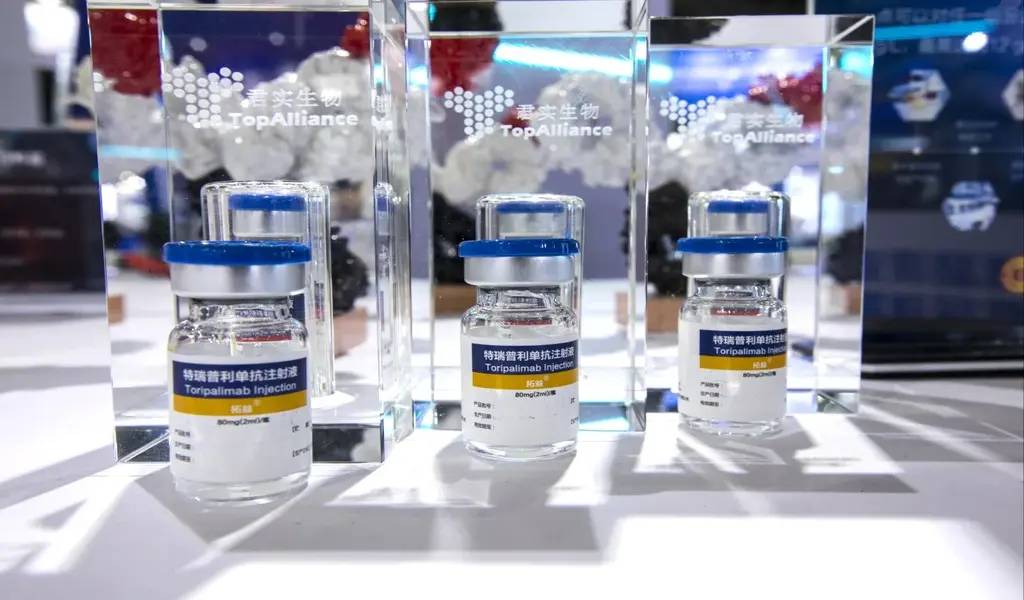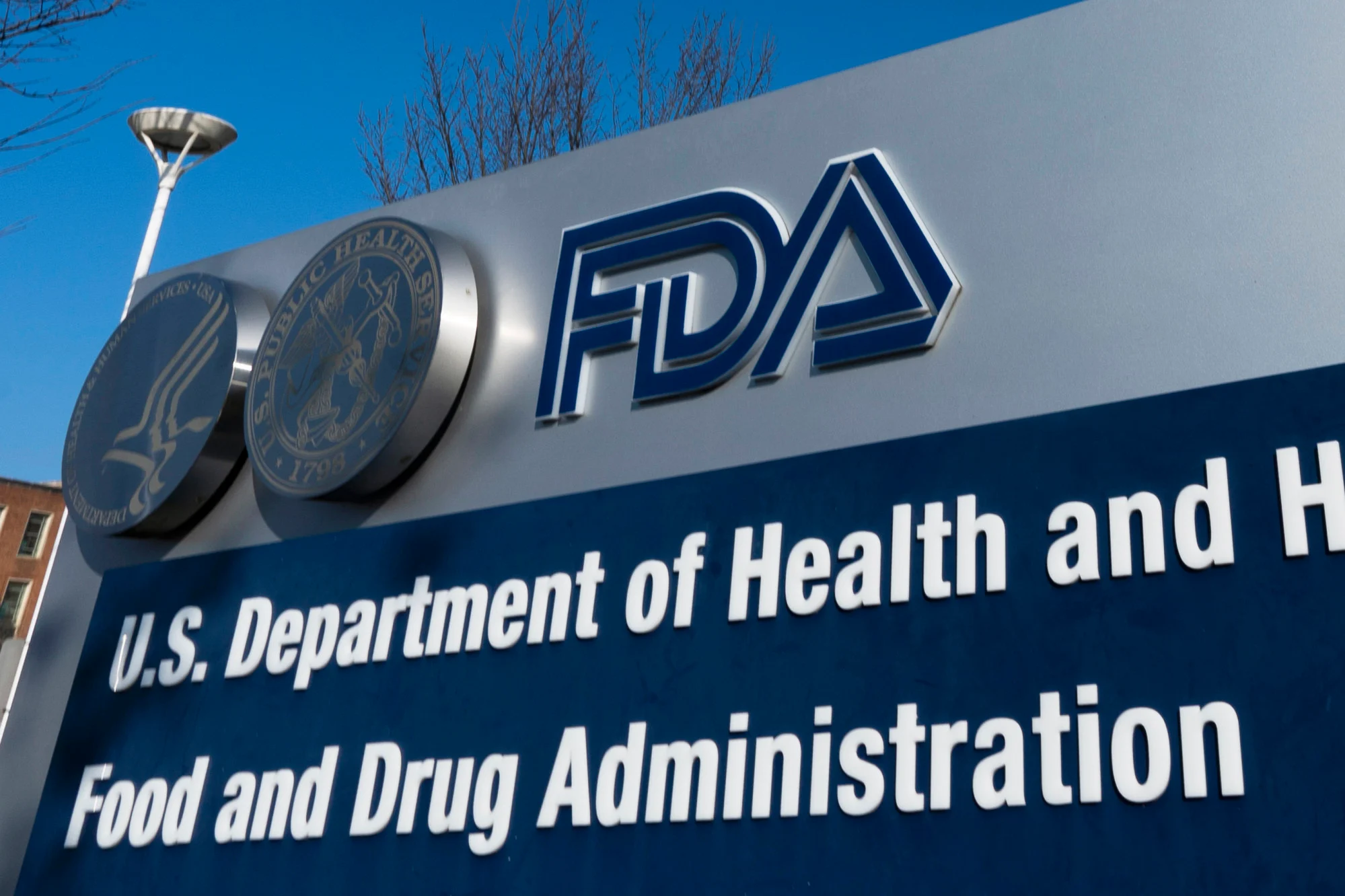(CTN News) – Two other cancer medications created by Chinese scientists are also expected to face price increases in the US market, with one drug costing more than 30 times more than in China. The FDA just authorized the drug.
Chinese cancer medications will be priced much lower than American equivalents, even after accounting for the enormous markup in the US market.
The pricing of Loqtorzi, the US brand name for Toripalimab, was released on Monday by California-based Coherus Biosciences and Shanghai Junshi Biosciences, the drug’s marketing partners.
According to Chinese cancer informational websites, the cost of a single-dose vial of Toripalimab is approximately 2,000 yuan (US$280) in China.
In a Monday filing to the US Securities and Exchange Commission, Coherus announced that the wholesale cost of a single-dose vial in the US will be $8,892.03. Compared to the same drug sold in China, the price in the US is over 31 times higher.
Even with the price increase, FiercePharma estimates it will be 20% cheaper than Keytruda, the best-selling PD-1 antibody medication in the US. PD-1 inhibitors help keep the immune system in balance.
The drug’s retail price in China is different from its national healthcare insurance enrollment price.
National Medical Insurance Administration data shows that by year’s end, nearly all Chinese citizens (95 percent) had enrolled in the system and gained basic coverage.
Like the black market for cocaine, the drug price has skyrocketed. According to US media, the street value in the US is forty times higher than in Colombia, the drug’s country of origin.
This month, the FDA approved two additional cancer medications developed in China for distribution in the US, after Toripalimab’s clearance.
The Chinese biotech company HutchMed’s oral medicine fruquintinib was approved for the treatment of persons with metastatic colorectal cancer who have already received treatment for the disease on November 9.
To treat chemotherapy-induced neutropenia, or low levels of a type of white blood cells, Evive Biotech—a worldwide biopharma subsidiary of Yifan Pharmaceutical based in Hangzhou—developed the injectable medication efbemalenograstim alfa. On November 16, the drug was approved for use.
Just as Toripalimab, fruquintinib—which will be sold in the US by the Tokyo-based Takeda Pharmaceutical Company under the brand name Fruzaqla—will also experience a price increase.
According to Medical Valley, a Chinese medical news site, a box of 21 pills containing 5mg of the medicine is offered in China for approximately 7,500 yuan (US$1,050). The identical dosage, according to a Takeda prescription, will cost $25,200 at wholesale in the United States, which is twenty-four times more than the cost in China.
A study released last year in the Journal of the American Medical Association cast doubt on the assertion made by US pharma corporations that the high cost of research and development is the driving force behind the country’s medicine prices.
In spite of the fact that the United States pays the most for innovative pharmaceuticals, the study found that the government health insurance program in the nation has never been able to negotiate lower rates.
From 2009 to 2018, the authors examined 60 medications, or 20% of all drugs approved. They discovered no correlation between the reported prices of these treatments and their estimated research expenses.
The study concluded that drug corporations set their prices based on market demand. This is affected by the drug’s demand, whether patients need to take it continually, and the market competition level.
After Toripalimab’s approval, many wondered if the medicine would be sold at a steep discount compared to its primary US market rival.
This ensued after pharmaceutical behemoth Eli Lilly made a 40% discount promise for their Chinese PD-1 drug that they were requesting FDA clearance for.
However, as reported by FiercePharma, Coherus CEO Dennis Lanfear stated on an investor call following Toripalimab’s approval that such a “heavily” discounted price was not being considered.
According to FiercePharma, Keytruda, the major competitor to Toripalimab available in China, was listed at half the price it is in the US when it first entered the market. Merck & Co. is situated in New Jersey.
Fruquintinib, an oral medicine, is the first chemotherapy-free treatment option for individuals with metastatic colorectal cancer in more than ten years. It is prescribed to patients with advanced stages of the disease. The NMPA, China’s national medical products agency, gave its initial green light to it in 2018.
The American Cancer Society reports that colorectal cancer, which starts in the colon or rectum, is the third most frequent cancer in the United States and the third greatest cause of cancer-related deaths for both men and women. According to a news release from Takeda regarding the medicine, colorectal cancer was ranked third globally.
“There has been limited innovation for patients with metastatic colorectal cancer for more than a decade,” stated Teresa Bitetti, president of global oncology business at Takeda.
Colorectal cancer is responsible for 7.8% of all new cancer diagnoses in the United States. Takeda reports that 70% of colorectal cancer patients will have metastasis, which occurs when malignant growths extend beyond the colon and rectum.
According to Cathy Eng, a doctor at Vanderbilt University Medical Centre, “metastatic cancer patients often present with inoperable disease… we must evaluate and consider treatment options that will improve overall survival without compromising quality of life” (hutchMed, 2019).
Fruquintinib was approved after two trials that included over 1,000 individuals. Patients in the studies who received both the medicine and supportive care had twice the progression-free survival rate than those who received only supportive care or a placebo.
Takeda reported a 34% reduction in mortality risk in patients treated with Fruquintinib. The Food and Drug Administration reported that hypertension was the medication’s most common side effect, followed by hand-foot syndrome and increased protein in the urine.
Other businesses own the rights to sell the three Chinese medications that the FDA approved this month in the US.
According to HutchMed, they will get royalties on net sales and other payments if the drug hits major milestones, while Takeda will manufacture and commercialize Fruquintinib outside of China.
Acrotech Biopharma of New Jersey claims that its drug efbemalenograstim alfa, which will be sold in the United States under the brand name Ryzneuta, can help avoid the negative effects of low neutrophil numbers.
Patients are more likely to get infections when their neutrophil count is low; the CDC reports that chemotherapy-induced neutrophil count drops often occur in the weeks following treatment.
Acrotech reported that the medicine, licensed by the NMPA in May in China, has been tested in 12 clinical trials with over 1,200 patients worldwide. The results show that the treatment effectively reduces the time patients spend with extremely low neutrophil levels.
Biotech company BeiGene co-founder Wang Xiaodong predicted earlier this month at the Hong Kong Laureate Forum that China will spearhead an explosion in the study of novel medications.
As far as the West is concerned, China is already well ahead. “Chinese companies will produce even more of a product if it is available overseas,” Wang stated.







